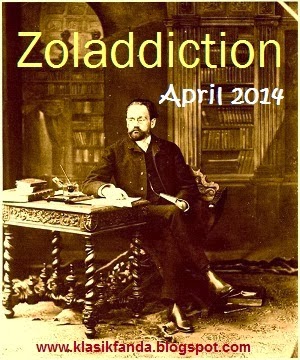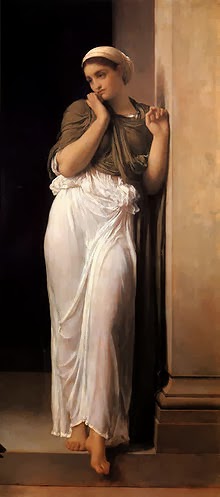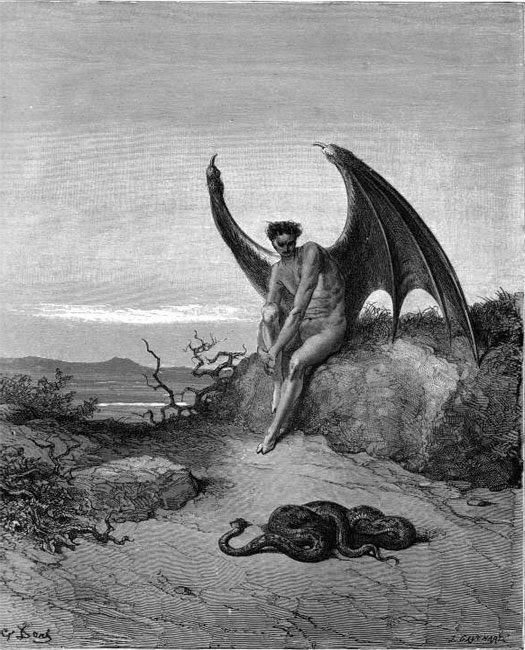The Odyssey Read-Along @ Plethora of Books
Book IX
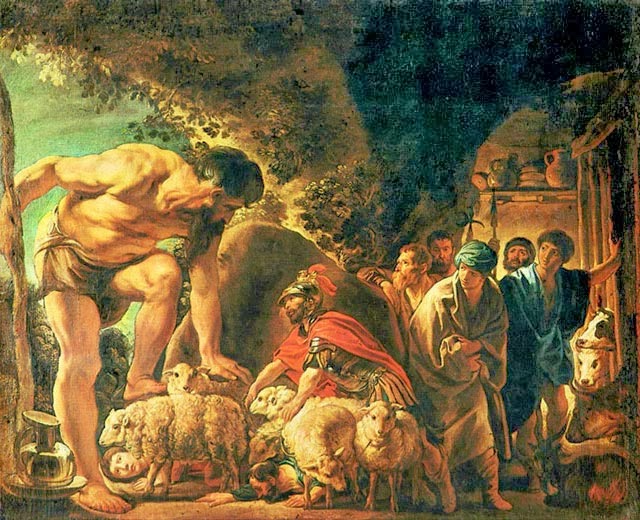 |
| Odysseus in the cave of Polyphemus by Jacob Jordaens (1635) source Wikipaintings |
Odysseus then concocts a brilliant plan to tie three sheep together and have one of men hang under each of the centre sheep. In this way they all escape, but unwisely Odysseus chooses to taunt the Cyclops when they are at sea, and twice Polyphemus hurls pieces of mountains at them, causing them to be pushed back to shore. Eventually they escape, but not before Polyphemus calls on his father, Poseidon, and prophecies death or troubles for Odysseus.
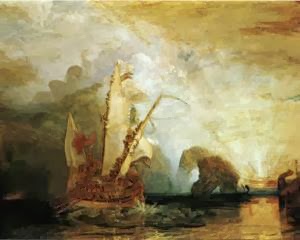 |
| Ulysses deriding Polyphemus by William Turner (1848) source Wikipaintings |
Hospitality
The Cyclops does not recognize the code of hospitality. Is this because his father is a god and he does not have to worry about offending them? I don’t think so, based on what has happened to other children of gods. Are they reasonably remote and usually do not have to worry about visitors, because of their hideous appearance and deviant behaviour? This is puzzling.
Crafty-Odysseus
Yet again, Odysseus proves his ingenuity and bravery in the face of huge odds and terrifying circumstances. His speeches to the Cyclops were touched with manipulation, falsity and daring. His quick thinking and careful planning were instrumental in their escape. Considering his stubborn refusal to leave in the first place because he wanted presents, his actions were well considered, however he still caused the death of some of his men.
King or Leader
Originally I had thought of Odysseus as the king of Ithaka, but even if this term has been used, I’m beginning to conclude that it was a loose term. As I read on, I wonder if he could be more accurately described as a type of leader. There are instances of him refusing to listen to his men, such as the case of mocking the Cyclops and not leaving the island without gifts; yet there are also cases where his men don’t listen to him, as when he urges that they leave after the first battle with the Kikonians and, because of their stubbornness, end up in another battle and are subjected to casualties. Does this behaviour make the suitors behaviour at home less surprising? What was Odyssey’s role in his own country?
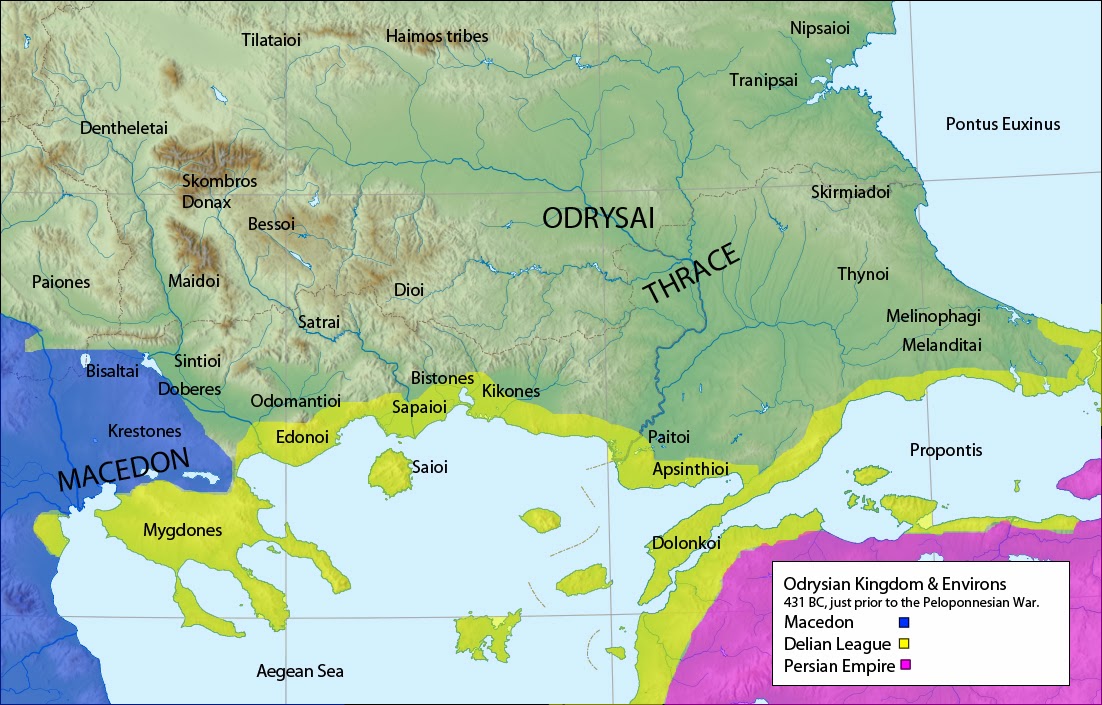 |
| Approximate location of the Kikonians source Wikipedia |
Book X
They arrive at the Aiolian island where Hippotas’ son, Aiolos lives. For one month he entertains Odysseus and his men and then gifts him with a bag “stuffed full inside with the courses of all the blowing winds” upon his departure. But lo, as the ships finally spy their homeland, the men begin to grumble about the greater portion of spoils that Odysseus has in his possession. While Odysseus sleeps from exhaustion because he would not permit anyone but himself to handle the ship, the men unwittingly release the winds which wildly blow them back to the island of Aiolos. In spite of Odysseus’ pleadings relating to the foolishness of his men, Aiolos is appalled to see them and sends them away, astounded that the gods are so much against them. Sailing, on the seventh day, they reach the citadel of Lamos and three people are sent off to scout. They encounter the daughter of Antiphates who sends them to her house, but there stands a woman as tall as a mountain, and when Antiphates materializes, he snatches up one man and prepares to eat him for dinner, while the rest flee back to the ships. The king raises the alarm throughout the city and these giants begin to hurl boulders at the ships, and spear men like fish as they go. Only Odysseus’ ship escapes and they reach the island of Aiaia, where Circe, the goddess who speak with royals and the daughter of Helios, lives. Odysseus and Eurylochos draw lots to determine who will reconnoitre the island and Eurylochos sets off with his men. When they find the house of Circe and she invites them inside; Eurylochos is the only one who refuses, suspecting treachery. His surmise is correct as Circe proceeds to lead the men into pig pens and transform them into pigs. Eurylochos hastens back to tell Odysseus of his mens’ sorry fate. Odysseus decides to face Circe on his own and on his way he meets Hermes who tells him how to best the goddess and gives him medicine to help counteract her potion. When Circe hands him the drink, he swallows it and, leaping up, draws his sword and springs at her as if to kill her.
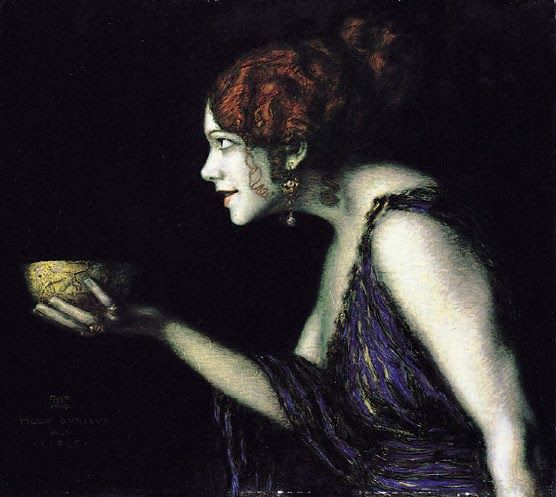 |
| Tilla Durieux als Circe by Franz von Stuck (1913) source Wikimedia Commons |
Astounded that the mixture has had no affect on him, she invites him into her bed, whereupon he forces her to swear that she will practice no more treachery upon him. She washes him, yet he refuses to eat before she sets his men free, which she does with a command to go back to his camp to bring back the rest of his companions. They cry and weep for joy when they see Odysseus return, but Eurylochos attempts to prevent the men from visiting Circe; Odysseus contemplates killing him but is restrained by his men, and Eurylochos, afraid of being left behind, follows.
.jpg) |
| Circe by Wright Barker (1889) source Wikimedia Commons |
For a year, they feast daily on “unlimited meat and sweet wine,” until Odysseus cannot bear it and clasps Circe’s knees, begging her to allow them to resume their journey. She agrees but imparts a surprising stipulation: Odysseus must visit the house of Hades and speak with the soul of Teiresias the Theban and blind prophet before his quest may continue. She gives him directions and instructions for sacrifice when he arrives there, then sets him on his way.
Leadership
Is it my imagination or is the chain of command seriously compromised? First, upon sight of their homeland, the crew becomes jealous of Odysseus’ spoils, and secretly opens the bag of the winds, which blow them back to where they started. Their envy of his treasures is palpable and their actions, mutinous.
Eurylochos, in spite of being elected leader of the reconnaissance expedition to Circe’s house, chooses not to go inside with his men. Was that jettisoning his leadership responsibilities? Did the men refuse to listen to his guidance? And when he was the only one to make it back to the ship, he was a nervous wreck, refusing to return, even when Odysseus came for them, assuring them everything was alright and that Eurylochos’ men were restored to their origin form. Odysseus wants to decapitate him for his insolence and has to be restrained. Was this because Eurylochos attempts to influence the men directly, without speaking to Odysseus first?
Either they are suffering from a slow breakdown of leadership, or the society of Ithaka is sufficiently lawless that there is room made for actions that challenge the chain of command.
Hospitality
The breach of xenia, or the tradition of guest-host hospitality, continues. The Phaiakians disliked strangers and entertaining them, the Cyclops wanted to make meals of them and mocked that his “gift” to Odysseus was that he would eat him last, and now the Laistrygonians attempt to eat them, and Circe turns them into pigs. Are these lands so far from mainland Greece that they don’t recognize this tradition?
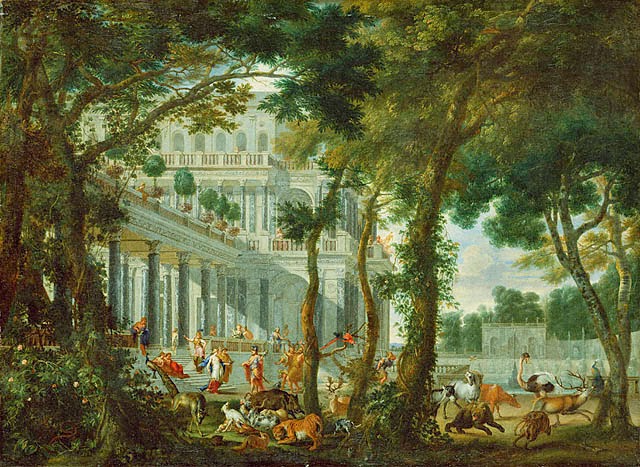 |
| Ulysses at the Palace of Circe by Wilhelm van Ehrenburg (1667) source Wikimedia Commons |

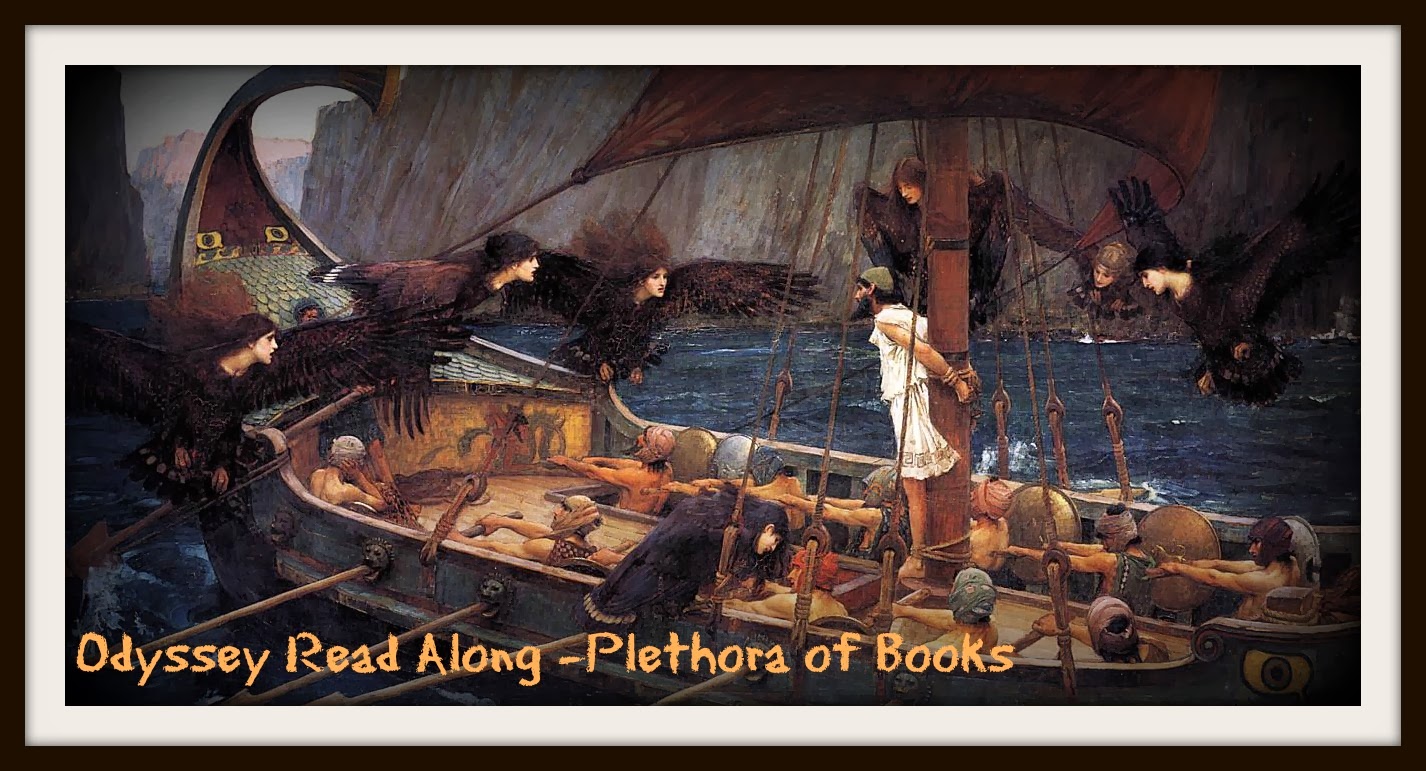



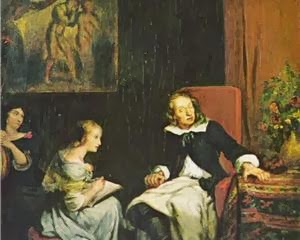.jpg!xlMedium.jpg)
